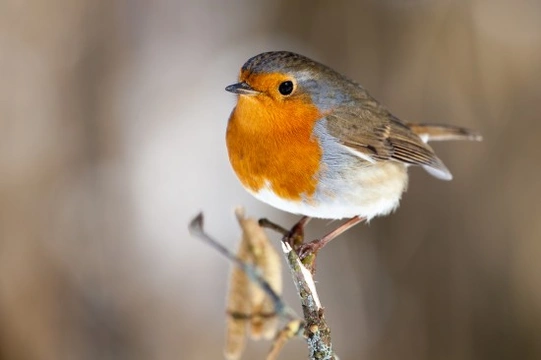
Feeding wild birds during the winter
As the weather continues to get colder, our native birds in the UK that do not fly south for the winter find it increasingly difficult to find sources of food. While food shortages can occur at any time of the year, the winter is generally the most challenging time of year for wild birds to find food to survive and thrive.
If you are interested in the conservation of our native birds and would enjoy seeing a wide variety of different birds flocking to your garden for food during the colder months, setting up some form of supplementary food for the UK’s birds during the winter is a great idea.
In this article, we will explain how to feed wild birds, plus what types of food are good for them and they enjoy eating.
What to feed?
Different types of birds enjoy different types of food, so there is no conclusive formula for what constitutes the “right” food for wild birds, or what is particularly likely to attract birds to your garden. However, there are some foods that are generally considered to be nutritious and suitable, and some to avoid.
Do feed:
- Black sunflower seeds
- Sunflower hearts
- Wild bird seed mixtures
- Nyjer seeds
- Mild grated cheese
- Small dried lentils
- Millet
- Peanuts
- Wet cat food and dog food
- Rice and cereal
- Insects and live food such as mealworms
- High-fat bird cake, bars and balls
- Coconut
Avoid feeding:
- Bread
- Large dried peas, beans or lentils
- Cooking fat, particularly that contains meat
- Polyunsaturated oils or margarines
- Dry cat food and dog food
- Chocolate
- Milk
- Stale or mouldy food
Different ways of providing food
There are a vast variety of different options for how to serve up food to the wild birds in your garden, from hanging feeders to bird tables and everything in between!
However you feed your garden birds, it is important to clear up any dropped food from ground level regularly, as delicious and nutritious morsels of food on the ground can attract rats and other rodents.
Some of the most popular methods of feeding wild birds include:
- Bird tables, which can be either home made or bought, and can range from a simple tray to complex and attractive designs with roofs! There should be a raised lip around the edge of the table so that food does not fall off it, and there should be at least one drainage hole to ensure that rainwater does not collect within the tray and ruin the food.
- Metal hanging feeders are specially designed to hold seeds and nuts, with holes large enough to allow birds to get their beaks into the feeders without risking damage.
- Plastic seed feeders consist of clear cylindrical tubes that hold seed and small pieces of dry food, and contain small holes around the sides and at the bottom to allow birds to get to the seed.
- Home made bird food and containers can easily be made at home, by mixing up a nutritious blend of suet and seeds and setting it inside of half a coconut shell to hang up.
- Beware of feeding fat balls that are sold in mesh nets for hanging up, as the mesh can trap bird’s feet and injure them. If you wish to buy ready-made fat balls, remove them from any mesh casings before hanging them up for the birds.
What types of birds am I likely to see?
Different types of foods attract different types of birds, so providing a wide selection of different offerings will ensure that you will see the most diversity among your avian visitors. Where you live can also have an effect upon the types of birds that live locally to you, and in some areas, birds such as woodpeckers and blackcaps are common, while in others, they are virtually unheard of.
The most commonly seen garden birds over the winter months include:
- House sparrows
- Starlings
- Robins
- Blackbirds
- Green finches
- Collared doves
- Blue tits
- Great tits
- Magpies
You may also be lucky enough to see a much wider range of birds, including:
- Woodpeckers
- Blackcaps
- Nuthatches
- Coal tits
- Marsh tits
- Long tailed tits
- Thrushes
- Redwings
- Wrens
- Tree creepers
- Goldfinches
...And many more!
Health and hygiene around wild birds
It is important to remember that wild birds, just like any other animals, can spread diseases and illnesses, and so you should take special hygiene precautions when feeding wild birds and handling tables, feeders and dishes. Keep all of your feeders separate to your household dishes and crockery, and disinfect them regularly. Always clean up spilled food from the ground, and do not allow food in feeders to decay and go mouldy.
Wash your hands thoroughly after handling your bird feeders or anything else relating to wild bird feeding, and wear gloves where possible.



